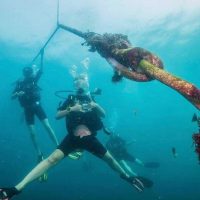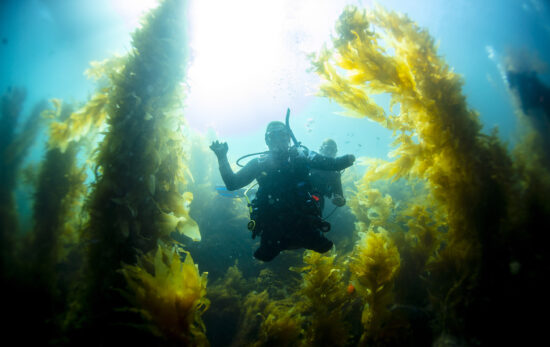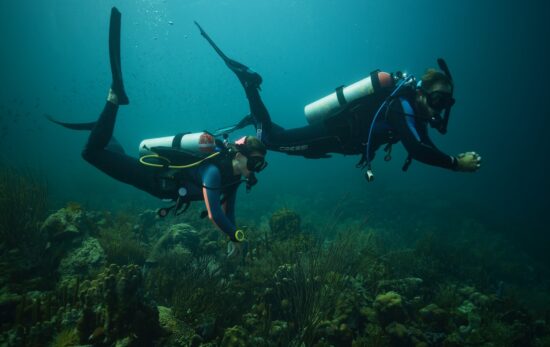PADI Open Water Scuba Instructor, Nadia Azizabadi took time out from her busy schedule to chat with us about her experience moving from a landlocked country to the island of Tasmania, Australia. We spoke of how she taught herself to swim and about her work passing on her love of the underwater world to migrant and refugee adults.
Can you tell us a little bit about yourself?
My name is Nadia Azizabadi, I am from Tehran, Iran and have been living in Tasmania, Australia for more than 6 years. I’m a PADI Open Water Scuba Instructor, scientific diver, Girls That Scuba Ambassador, AUSTSWIM instructor, national team player for Tasmanian women’s underwater rugby team and underwater hockey Master team player.
When I first came to Australia I could barely swim and deep part of the pool was a nightmare for me. However, I trained myself every day, faced discrimination and spent a lot of time and money going headed in the wrong direction until I discovered the path toward my goal.
I want to help people become the hero of their yesterday and through my migrant-focussed swim-school initiative From Zero to Hero, this dream has become a reality. I believe the key to a strong community isn’t having more migrants, it’s about having happy and healthy migrants both physically and mentally.
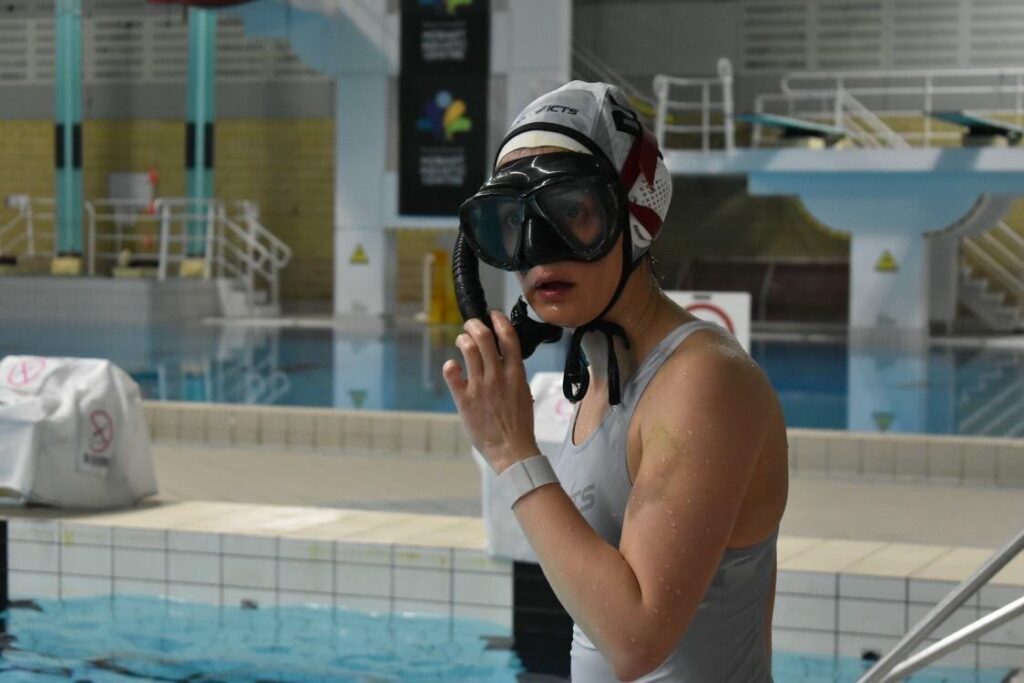
What do you remember about your first scuba diving experience?
My first try dive was my first time entering a deep swimming pool so I had mixed feelings of anxiety, excitement, fear and enjoyment. Now that I am an instructor myself, I can say I was a terrified student, to the point where my instructor even told me: “You know what? Scuba diving is not for everyone!” This made me even more determined to prove to myself that he was wrong.
Another good memory is completing my first night dive during my Advanced Open Water Diver Course. Jumping into the dark ocean was scary and I was really anxious doing a giant stride. I thought to myself, “when it’s the scariest, is when you to face it and jump, otherwise you should go home and never come back.” I’m glad I chose to take the jump that night, because now night diving is my favourite kind of diving.
What is From Zero To Hero and how do you think this has impacted the wider community?
From Zero To Hero is a specialised aquatics education initiative program focussed on migrant adults to guide them through the journey of learning about water safety and sport. Courses range from those for non-swimmers and continue through to courses and training for those looking to become a capable water sport player. These courses include (but are not limited to) scuba diving, freediving, snorkelling, spearfishing and underwater hockey.
The program focuses on refuges and other groups of the community who may not be able to afford swimming classes. I believe that water safety knowledge should not be dependent on financial situations and that access to free lessons on how to be safe in and around the water is paramount, especially on an island like Tasmania or on the bigger island of Australia.
Why do you think it’s important for people to seek adventure through diving?
For me, scuba diving is a life lesson. Through my Open Water Diver course, I have learnt that in any dive emergency you should “STOP, THINK and ACT.” This is something I try to implement this to my everyday life.
I was taught that during a shore dive, when the waves are too big and the surface of the ocean is too rough, I should put my fins on, have my regulator in my mouth and as soon as I slip below the surface it would be much calmer. This way of thinking has helped me to face my biggest fear and go into it fully equipped and once I am deeply into it, by calming myself and remembering to “Never Hold My Breath”, the storm would pass.
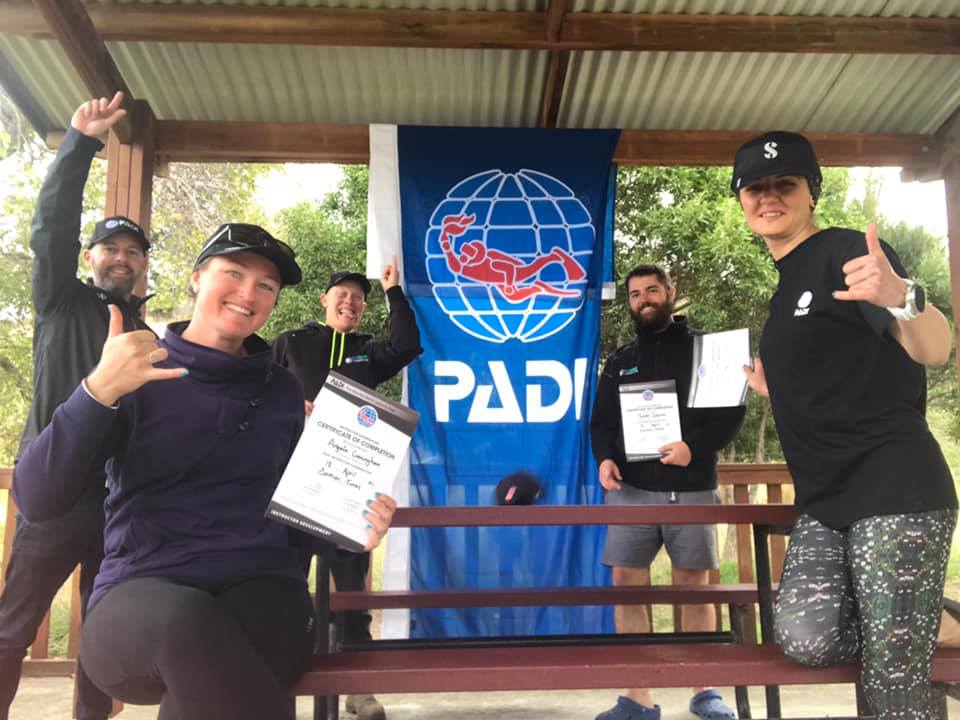
As a leader in your community, how do you encourage divers to be torchbearers for the environment?
People learn by observing. I try my best to be a role model for non-divers and new divers. The main slogans from my ‘From Zero To Hero’ program are “be the hero of your yesterday” and “be the change you want to see in the community”. By this, I mean that all changes start from us. If everyone can do can do their bit for society, we would have a happier and healthier community of people and therefore a healthier environment. I also regularly organize underwater clean ups and PADI AWARE Foundation activities to raise awareness for environment issues in my local area.
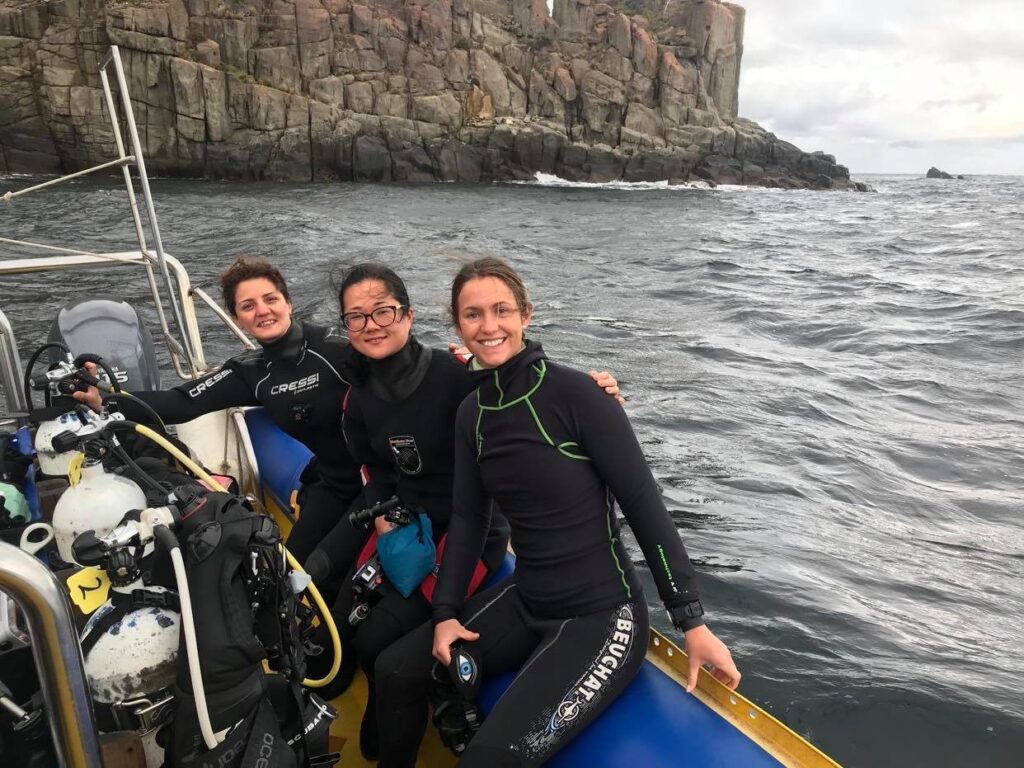
Are there any graduates from your swim school who have gone on to start scuba diving?
The first round of the program in collaboration with a community group for migrants had 20 young refugees complete their Discover Scuba Diving course and, now that I am proudly a PADI Open Water Scuba Instructor, some of my other students are getting ready to do their Open Water Diver course soon.
Share Your Hope Rising Stories with #PADIPeople
Hope is rising all around. Show us how you are making a difference, and how you believe that better days that are possible right now through diving. Simply post descriptions, photos or videos to your social media, tagging PADI and #PADIPeople.
